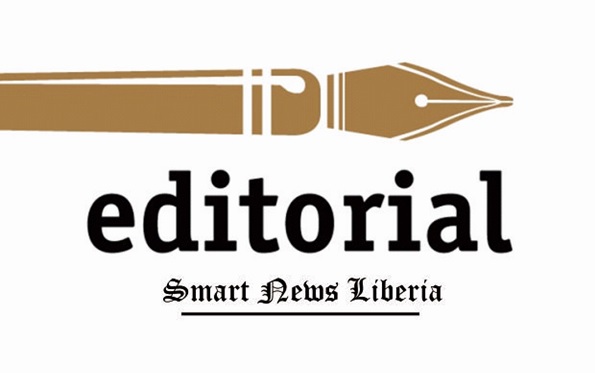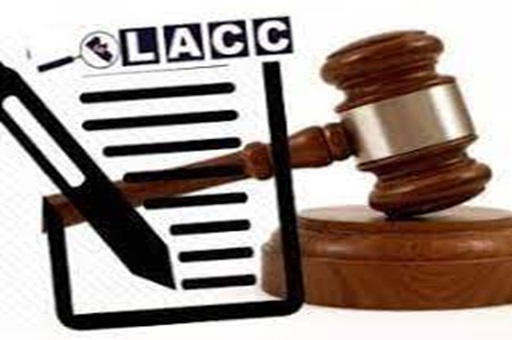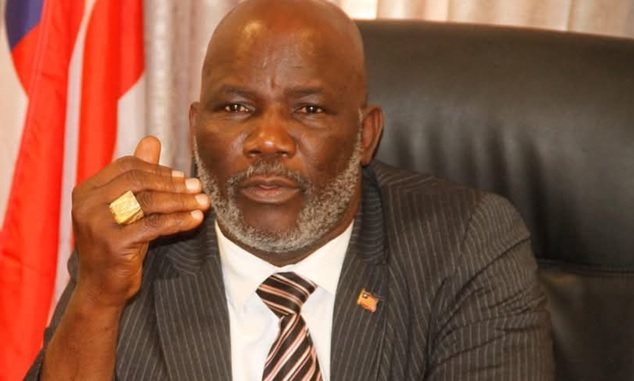The recent actions of the House of Representatives in Liberia have raised serious concerns about the integrity of the country’s democratic institutions. The Lower House, which should serve as a model for accountability and transparency, is fast becoming a symbol of disorder and chaos. Recent incidents, particularly those involving Speaker Richard Nagbe Koon, are indicative of a deeper crisis within Liberia’s governance that threatens the democratic process.
In a shocking turn of events, just weeks after a blatant intrusion into the office of Speaker Cllr. J. Fonati Koffa, another scandal unfolded on February 18. Representative Yekeh Kolubah of Montserrado County District #10 found himself at the center of controversy when his vehicle was forcibly opened under the orders of Speaker Koon. The justification for this invasion of privacy? Kolubah’s vehicle was allegedly parked in a space reserved for the Speaker. However, no official law or regulation exists to dictate the parking arrangement for the Speaker of the House, which makes Koon’s actions even more questionable.
What makes this incident even more disturbing is the fact that Koon took the extraordinary step of having an electrical device used to break into Kolubah’s car, accompanied by police officers. This action was taken without any legal authorization, and it has exposed the deep flaws in the leadership of the House. It is one thing for the Speaker to be upset over a perceived violation of personal space, but it is entirely another to take the law into one’s own hands and trample on the rights of a fellow lawmaker. The absence of any legal grounding for such an action only highlights the lawlessness that is creeping into the House.
Such actions point to a wider and more troubling issue: the lack of respect for the rule of law. The legislative body is supposed to be a place where the laws of the country are made and upheld. Instead, we are witnessing a body where the leaders are acting with impunity, making decisions based on personal grievances rather than the law. This creates a dangerous precedent where those in power feel they can bypass the law without consequence.
Furthermore, this dysfunction is symptomatic of a larger problem within the House of Representatives. The role of the legislature is to serve as a check on the executive branch, ensuring that power is balanced and that the interests of the people are represented. Unfortunately, this does not seem to be the case in Liberia. Instead, the House has become embroiled in petty personal conflicts and power struggles that overshadow its primary responsibility to the people. If the legislators cannot resolve internal issues in a lawful manner, how can the public trust them to effectively govern the country?
The lack of accountability in the House of Representatives is alarming. Instead of serving as a beacon of democracy, the Lower House has become a hotbed of corruption, nepotism, and arbitrary decision-making. The actions of Speaker Koon and other members of the House are eroding the public’s trust in the institution and raising doubts about the integrity of the political system as a whole. How can Liberians have faith in their elected officials if those very officials disregard the law and act in such a reckless manner?
The Liberian public deserves better. The country is already facing immense challenges, ranging from economic instability to poor infrastructure, and the last thing it needs is a divided and lawless legislature. The people of Liberia need a legislature that can be trusted to represent their interests and uphold the rule of law. Instead, they are being subjected to the spectacle of lawmakers who are more concerned with settling personal scores than with serving the public good.
The ongoing turmoil within the House of Representatives is a clear indication that the leadership is failing in its duty to the people. The actions of Speaker Koon and his supporters should not go unchallenged. The public must demand that those in power be held accountable for their actions. This includes not only addressing the blatant violations of the law that have occurred but also ensuring that such behavior does not become the norm.
If Liberia is to move forward, the country must address the dysfunction within the House of Representatives. The integrity of the legislative branch must be restored, and those who undermine the democratic process must be held accountable. The actions of a few lawmakers should not tarnish the reputation of the entire institution. The people of Liberia deserve a legislature that works for them, not one that operates above the law.
The message from this crisis is clear: the House of Representatives must get its act together. If it fails to do so, Liberia’s democracy is in grave danger. The people have spoken, and it is time for the lawmakers to listen. The only way forward is through a renewed commitment to the rule of law, transparency, and respect for the rights of all citizens. Only then can the House of Representatives regain the trust and confidence of the people it is meant to serve.







